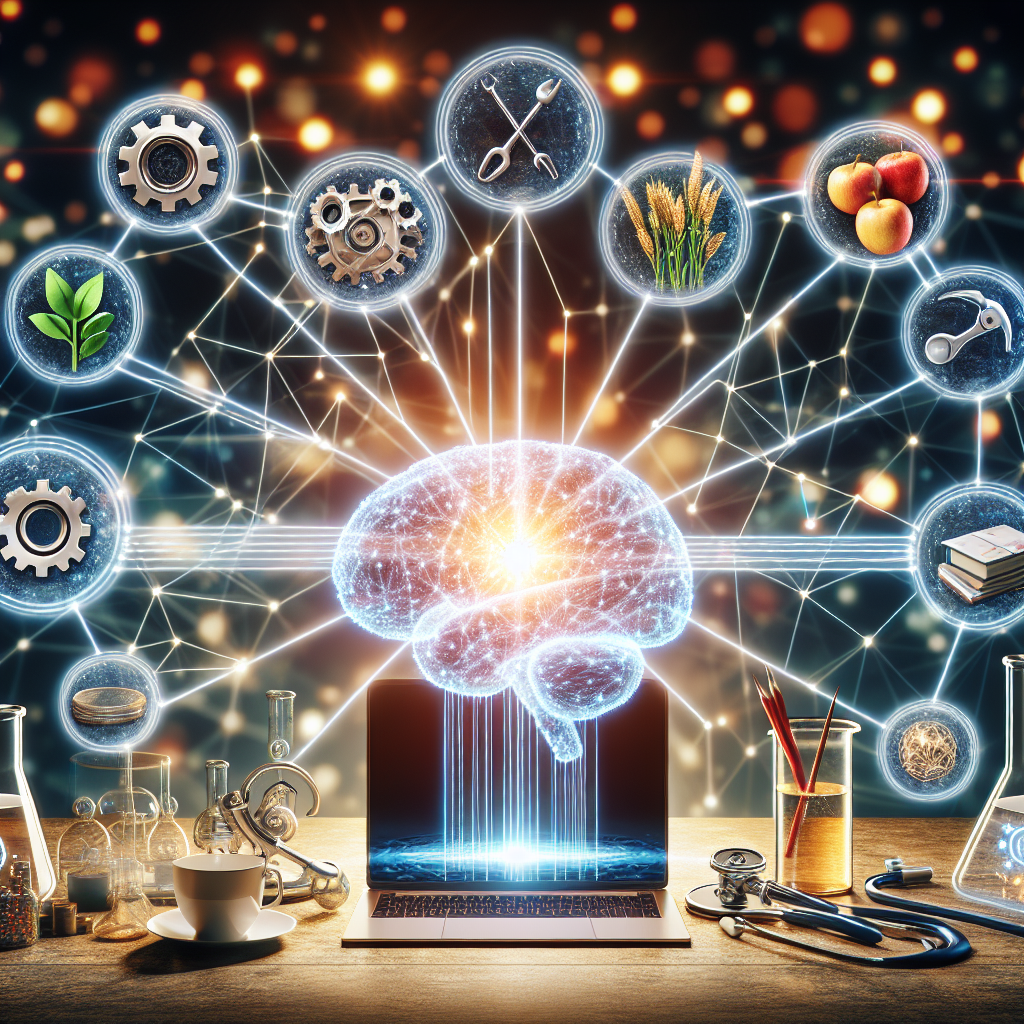The Future of AI: How AGI Could Revolutionize Industries
Artificial General Intelligence (AGI) is a concept that has been the subject of much speculation and debate in recent years. As we continue to make advancements in artificial intelligence (AI) technology, the possibility of creating machines that possess human-like intelligence and cognitive abilities becomes increasingly closer to reality. AGI has the potential to revolutionize industries across the board, from healthcare to finance to transportation, and everything in between. In this article, we will explore the potential impact of AGI on various industries and discuss how this technology could shape the future of our world.
What is AGI?
AGI is a hypothetical form of artificial intelligence that possesses the ability to understand and learn any intellectual task that a human being can. While current AI systems are designed for specific tasks and are limited in their capabilities, AGI would be able to adapt and learn new tasks in a way that is similar to how humans learn. This would allow AGI to perform a wide range of tasks and solve complex problems that are beyond the capabilities of current AI systems.
The development of AGI is still in its early stages, and many experts believe that we are still several years away from creating a truly intelligent machine. However, recent advancements in machine learning and neural networks have brought us closer to this goal than ever before. As researchers continue to push the boundaries of AI technology, the possibility of creating AGI becomes more and more feasible.
Impact on Industries
The potential impact of AGI on industries is vast and far-reaching. Here are some of the ways that AGI could revolutionize various sectors:
Healthcare: AGI has the potential to revolutionize healthcare by improving diagnosis, treatment, and patient care. Intelligent machines could analyze medical data to identify patterns and trends that human doctors may miss, leading to more accurate diagnoses and personalized treatment plans. AGI could also assist in surgery, drug discovery, and disease prevention, ultimately improving patient outcomes and reducing healthcare costs.
Finance: In the finance industry, AGI could be used to analyze market trends, predict future stock prices, and automate trading decisions. Intelligent machines could also detect fraud and financial crimes more effectively than current systems, leading to a more secure and transparent financial system. AGI could also improve customer service by providing personalized investment advice and financial planning services.
Transportation: AGI could revolutionize the transportation industry by enabling self-driving cars, trucks, and drones to navigate roads and airspace more efficiently and safely. Intelligent machines could optimize traffic flow, reduce accidents, and improve transportation logistics. AGI could also revolutionize public transportation by providing on-demand ride-sharing services and autonomous vehicles.
Manufacturing: AGI could transform the manufacturing industry by automating production processes, optimizing supply chains, and improving product quality. Intelligent machines could analyze data to identify inefficiencies and bottlenecks in manufacturing operations, leading to increased productivity and cost savings. AGI could also enable the creation of more flexible and adaptive manufacturing systems that can quickly respond to changing market demands.
Education: AGI could revolutionize education by creating personalized learning experiences for students, adapting to their individual needs and abilities. Intelligent machines could analyze student data to identify areas where students are struggling and provide targeted interventions to help them succeed. AGI could also assist teachers in developing curriculum, grading assignments, and providing feedback to students, ultimately improving the quality of education.
Entertainment: AGI could revolutionize the entertainment industry by creating more immersive and engaging experiences for audiences. Intelligent machines could analyze user data to personalize content recommendations, predict audience preferences, and create interactive storytelling experiences. AGI could also be used to develop virtual reality and augmented reality applications that blur the line between the physical and digital worlds.
FAQs
Q: When will AGI be developed?
A: The development of AGI is a complex and challenging task that is still in its early stages. While some experts believe that we could see AGI within the next decade, others believe that it may take several more decades to achieve true human-like intelligence in machines.
Q: What are the ethical implications of AGI?
A: The development of AGI raises many ethical questions and concerns, such as the potential impact on employment, privacy, and human autonomy. It is important for researchers, policymakers, and society as a whole to carefully consider the ethical implications of AGI and develop frameworks to ensure that this technology is used responsibly and ethically.
Q: Will AGI replace human workers?
A: While AGI has the potential to automate many tasks currently performed by humans, it is unlikely to completely replace human workers. Instead, AGI is more likely to augment human capabilities and enable us to focus on more creative and complex tasks that require human intelligence and judgment.
Q: How will AGI impact society?
A: The impact of AGI on society will depend on how this technology is developed and deployed. While AGI has the potential to revolutionize industries and improve our quality of life, it also raises concerns about job displacement, inequality, and the concentration of power in the hands of a few. It is important for society to engage in a thoughtful and inclusive dialogue about the implications of AGI and work together to ensure that this technology benefits everyone.
In conclusion, AGI has the potential to revolutionize industries across the board and reshape the future of our world. While the development of AGI is still in its early stages, recent advancements in AI technology have brought us closer to creating intelligent machines that possess human-like intelligence and cognitive abilities. As researchers continue to push the boundaries of AI technology, the possibilities for AGI are endless. It is important for society to engage in a thoughtful and inclusive dialogue about the implications of AGI and work together to ensure that this technology is developed and deployed responsibly and ethically. The future of AI is bright, and the potential for AGI to revolutionize industries is limitless.

